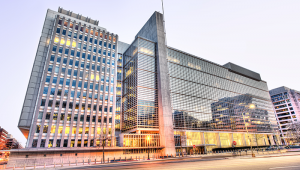Sir Suma Chakrabarti said moves to strengthen core state and regulatory institutions, enhance productivity and human capital and increase investments in innovation and infrastructure would lay the foundations for strong, sustained growth in emerging markets in the future.
Speaking at the China Development Forum in Beijing on Saturday, Chakrabarti marvelled at the transformation in emerging markets over the last 25 years, which he described as “little short of incredible”.
However, he noted, “sustaining that rate of change was always going to be a challenge”. Growing inequality, reform fatigue, climate change and today’s economic slowdown are just some of the challenges to that growth model, he said.
“The stakes are now extremely high,” he continued. “This mix of short-term and long-term challenges raises some uncomfortable questions about the future of emerging markets.”
He said emerging markets need to boost their productivity growth through innovation. This will in turn require investment, which he said is already falling short.
Countries should leverage equity financing to plug that gap, he said, through foreign direct investment, private equity and equity through stock exchanges.
This will in turn necessitate reforms to strengthen shareholder rights and develop local capital markets, he added, noting he also “cannot stress enough the importance of strengthening institutions and improving the business climate”.
“Strong institutions are key enablers of better, more efficient markets and hence of more stable economies, able to attract stronger flows of investment.”
Efforts should be focused on core state institutions – the presidency and prime ministers’ office, the finance and economy ministries, the central bank and independent judiciaries – as key to reform, he said.
He continued: “We need to strike a balance between institutions that intervene and those that regulate. Whether the state, the judiciary or the corporate sector, we must fight the curse of corruption and confront vested interests head on.”
Investments in infrastructure and human capital and the mobilisation of private capital would all be crucial ingredients to success.
“If emerging markets can follow the playbook I have just described and find new sources of growth, their prospects remain bright,” he concluded.













